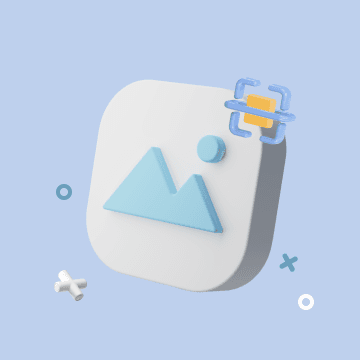
What Are AI SEO Agents? A Beginner’s Guide to Smart Optimization
SEO AI agents are intelligent software systems designed to automate, analyze, and optimize SEO workflows. They can manage multiple tasks such as keyword research, content creation, and technical audits while generating actionable insights from data.
By using bika.ai, marketers can integrate ai-powered seo agents naturally into their workflows, improving productivity and accelerating ranking improvements. These agents are not magic solutions; their effectiveness relies on accurate data, well-crafted prompts, and combining human strategy with AI efficiency.
Why Are AI SEO Agents Important for SEO and Content Workflows?
The modern SEO landscape is increasingly complex. Marketers, content creators, and website managers handle keyword research, ranking analysis, content optimization, technical audits, and performance monitoring at the same time. This is where AI SEO agents act as intelligent assistants to streamline and accelerate workflows.
They help SEO teams by automating large portions of the execution layer while keeping strategy decisions under human control.
What AI SEO agents typically do in real workflows
- Automate repetitive SEO tasks such as keyword research, ranking checks, and content optimization
- Compile large volumes of competitor data, SERP signals, and keyword metrics into usable insights
- Run SEO audits, detect index issues, and identify declining or growing pages
- Track performance in real time and surface actionable recommendations for next steps
- Reduce execution time so teams can focus on strategy instead of mechanical tasks
A practical example comes from the field: one e-commerce company with over 1,000 SKUs used AI agents with structured prompts and competitor scraping to optimize product descriptions at scale. Another user, reported that automated content and analytical workflows using AI agents produced results that were not only significantly faster but also more cost-efficient than traditional methods.

Platforms like bika.ai enable these results by offering an AI agent platform where users can orchestrate SEO tasks without building systems from scratch. When agents take over data-heavy execution, humans regain time for judgment, ideation, and decision-making. This balance between automation and oversight is what makes AI SEO agents valuable for long-term success across content and ranking workflows.
What Are AI-Powered SEO Agents and How Do They Differ from Tools?
AI-powered SEO agents are autonomous systems that can execute, analyze, and optimize a variety of SEO tasks without constant manual input. They go beyond traditional SEO tools by making decisions based on real-time data and offering actionable recommendations.
Unlike standard SEO software that only provides raw metrics, AI SEO agents interpret information and turn it into strategic insights. And unlike chatbots, which primarily respond to prompts, these agents actively manage SEO workflows.
For example, an AI agent can:
- Detect underperforming pages using Google Search Console data
- Generate new content ideas based on keyword gaps
- Recommend internal linking structures for stronger SEO performance
- Perform technical audits and issue prioritized action lists
Key Differences Between AI Agents, Tools, and Chatbots:
- 🧠 AI SEO Agents: Decision-makers that combine data analysis, automation, and strategy execution.
- 📊 Traditional Tools: Provide insights and data but rely on humans for interpretation and action.
- 💬 Chatbots: Focus on interaction and support, not complex SEO workflows.
Modern marketing teams and agencies increasingly rely on multi-agent systems to improve efficiency, accelerate optimization cycles, and maintain a competitive edge in fast-changing SEO environments.
How Do AI SEO Agents Work to Optimize Rankings?
AI SEO agents improve rankings by running a continuous loop of data collection → reasoning → action execution, rather than stopping at analytics. They treat SEO as an evolving system that must be monitored, interpreted, and adjusted with minimal human load. This is where their value differs from static dashboards or rule-based scripts.
They are powered by three intelligence layers:
- NLP to understand intent and content semantics
- Machine learning to detect ranking patterns and predict impact
- Real-time integrations to sync with GSC, crawling data, and SERP APIs
- Automation engines to apply changes or generate precise fix steps
A typical optimization workflow is structured and repeatable:
- Detect underperforming pages or ranking shifts
- Diagnose root causes(intent mismatch / link gap / technical blocker / SERP reform)
- Infer the most effective path to regain visibility
- Produce concrete instructions such as:rewrite a section, add internal links, or fix indexability
- Execute automatically or surface for human approval
This approach allows agents to act on multiple ranking levers in parallel:
- Content layer:Generate briefs, rewrite weak blocks, align with SERP patterns
- Keyword layer:Cluster queries, prioritize by winnability
- Technical layer:Scan issues, rank fixes by impact, output developer-ready actions
- SERP layer:Extract winning patterns from top pages and reverse-engineer structure
- Link layer:Find gaps vs competitors and surface link opportunities
The result is not “more data,” but faster and less-wrong decisions. Instead of periodic manual audits, AI SEO agents run continuous inference and execute with human-in-the-loop control when needed.
What Tasks Can AI SEO Agents Perform for Your Website?
AI-powered SEO agents act across the full search workflow — not only reporting issues but driving actions that move rankings. Their scope typically covers five operational tracks:
- Keyword research & opportunity discovery
Surface winnable queries, cluster them by intent or topic, and track position shifts as inputs change. - Content optimization & refresh
Rewrite weak sections, refine headings and meta fields, align pages to SERP patterns, and enforce on-page SEO consistency. - Technical SEO diagnostics at scale
Monitor indexability, Core Web Vitals, canonical rules, sitemaps, schema, crawl depth, and prioritize fixes by business impact. - SERP / competitor intelligence extraction
Reverse-engineer what makes top pages win, detect format trends (FAQ/PLP/blog/video), and convert them into page-level playbooks. - Content gap & coverage enforcement
Flag missing angles, empty clusters, thin pages, or cannibalization cases, then generate actionable fill-ins.
A real deployment example:
One e-commerce operator orchestrated a multi-agent SEO chain with scraping, n8n automation, and prompt engineering to rebuild product pages. The agent stack rewrote descriptions, reorganized internal links, and benchmarked competitors. Within weeks, both traffic and conversion curves lifted.

Compared with single-purpose tools, SEO agents run these tasks continuously and compound effects over time. For example, bika.ai go further by providing an AI agent platform that connects keyword intelligence, SERP analysis, and content rewriting in one loop — reducing manual clicks while increasing decision accuracy.
How Can AI SEO Agents Improve Efficiency and Boost Results?
AI-powered SEO agents bring efficiency not by “doing the same thing faster,” but by changing how the work is done. They process large datasets in seconds, surface patterns humans would miss, and run tasks in parallel. This turns hours of manual work into a continuous, always-on optimization loop.
The cost impact is also material. Teams that previously relied on agencies or human analysts report drastic reductions in workload and spend. In multiple deployments, SEO AI agents have delivered work at a fraction of the time and cost — with many users citing order-of-magnitude gains (e.g. 10× speed at ~90% lower cost compared to traditional workflows).

Efficiency alone is not the whole story — AI agents also improve decision quality. By reading traffic signals, clustering queries, and comparing SERP winners, agents help teams act on the highest-leverage changes first. This reduces “busy work” and shifts effort toward actions with ranking or revenue impact instead of low-value tasks.
These gains do not replace human oversight. Structured prompting, approval checkpoints, and semi-custom agent chains ensure that outputs stay aligned with brand tone, business goals, and compliance needs. This “AI executes → humans direct” structure mirrors what we described earlier: AI-powered SEO agents do the heavy lifting, humans do the steering — a division of labor that compounds results over time.
How Can Beginners Get Started with an AI SEO Agent Platform?
Getting started with an ai agent platform can feel daunting, but breaking the process into clear steps makes it manageable. Beginners should first focus on understanding what ai-powered seo agents can do and how they fit into daily workflows. Starting small is key—optimize a single page or run a short campaign to observe results before scaling.

One practical choice for beginners is bika.ai. It is designed as an ai organizer for one-person companies, allowing users to build and manage their own agentic ai teams without coding. Using its Template Center, beginners can deploy ready-made workflows for SEO content updates, keyword tracking, or data analysis. This hands-on approach helps users understand what is ai agent in practice and test workflows safely.
Here is a simple roadmap for beginners:
- Select a platform – choose an ai agent platform like bika.ai and explore its workflow capabilities.
- Test structured prompts – start with simple tasks like keyword research or updating meta descriptions.
- Integrate analytics – connect tools like Google Search Console, Serper, or BigQuery for real-time data input.
- Refine iteratively – adjust prompts and review outputs to ensure actionable, reliable recommendations.
- Scale gradually – once comfortable, expand the workflow to multiple pages, campaigns, or even full-site automation.
Community feedback emphasizes that success comes from testing, learning, and adjusting in real-world scenarios. Beginners should invest time in prompt engineering, providing high-quality data and context. Even with automated workflows, human oversight ensures content quality and preserves brand voice.
💡Another important tip:
Treat AI as an assistant rather than a replacement. AI can handle repetitive or data-heavy tasks, but strategic decisions, creative adjustments, and final review still require human input. Platforms like bika.ai make this balance easy by combining automation, collaboration, and tracking in one workspace.
Finally, beginners should leverage prebuilt templates and small experiments to build confidence. Using bika.ai’s workflow examples, new users can quickly see how seo ai agents optimize content, track rankings, and generate insights. Over time, this structured approach helps beginners become proficient in using AI agents while minimizing errors and maximizing efficiency.
What Are the Limitations and Risks of AI SEO Agents?
While ai-powered seo agents bring significant efficiency and automation to SEO workflows, they are not without limitations. Understanding these risks helps teams make smarter decisions and avoid costly mistakes.
AI agents rely heavily on the quality of data and the clarity of instructions. It means that flawed inputs or poorly designed prompts can lead to inaccurate or misleading recommendations.
Beginners may underestimate the learning curve required to effectively set up, test, and refine workflows, especially when integrating multiple tools and APIs.
Key challenges include:
- AI Hallucination: Agents may generate incorrect recommendations if prompts or datasets are flawed.
- Data Dependency: High-quality, structured inputs are essential for reliable outputs.
- Learning Curve: Users need familiarity with prompt engineering, workflow configuration, and integrating analytics tools.
To mitigate these risks, best practices suggest keeping humans actively in the loop. Teams should implement structured output formats and continuously test prompts to ensure ai SEO agents’ results remain actionable.
Semi-custom workflows tailored to specific content types help maintain relevance and brand consistency, while ongoing evaluation of agent performance prevents errors from propagating across large-scale SEO campaigns. By combining AI capabilities with human oversight, teams can leverage seo ai agents effectively while minimizing potential pitfalls.
Conclusion
Successfully leveraging ai-powered seo agents begins with a clear plan. Before deploying AI, define your SEO goals, understand your website’s needs, and map workflows for automation. Integrating ai agent platforms like bika.ai ensures you can coordinate multiple agents efficiently while keeping human oversight.
Start with these key steps to integrate AI into your workflows:
- Start with clear objectives: Identify priority SEO tasks to ensure your agents focus on high-impact areas.
- Prepare high-quality data: Provide accurate, context-rich inputs for reliable and actionable AI recommendations.
- Invest in prompt engineering: Continuously test and refine outputs to align with your SEO goals and strategy.
- Combine AI with human strategy: Maintain brand voice, verify recommendations, and supervise AI outputs for relevance.
- Monitor performance: Track workflows, analyze results, and adjust strategies to maximize ranking, traffic, and content quality.
Following these steps allows marketers to gradually scale from single-page optimizations to full-site automation. Using bika.ai, teams can leverage structured prompts, multi-agent workflows, and analytics integration to boost efficiency, drive measurable results, and maintain content quality across all SEO efforts.

Recommend Reading
Recommend AI Automation Templates




